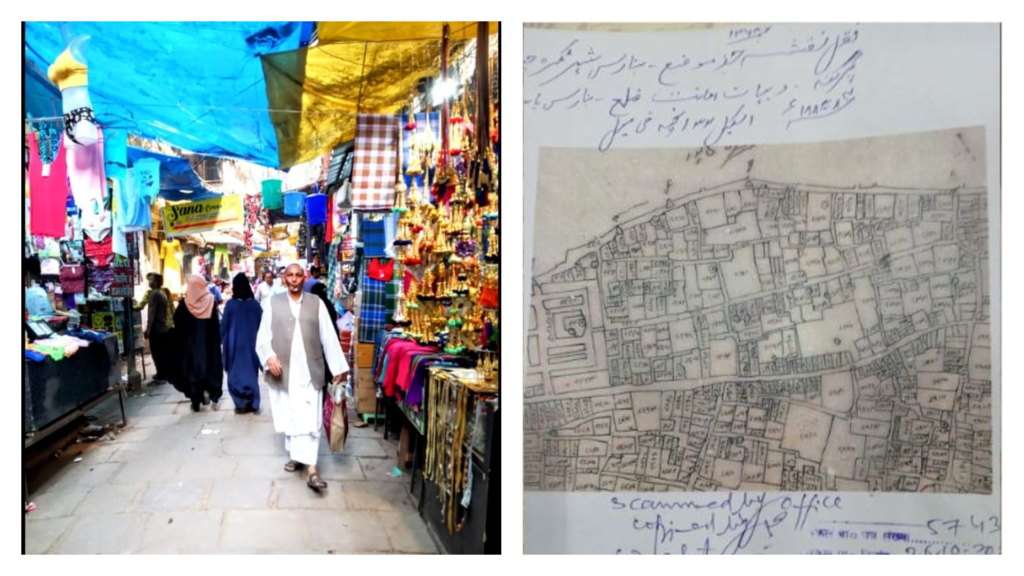The Proposed Project Threatens Livelihoods and Erases Historic Muslim Heritage in the Heart of Varanasi
Team Clarion
LUCKNOW — Varanasi, a city steeped in history and religious significance, is once again at the centre of controversy. This time, the proposed widening of Dalmandi market, a historic Muslim-dominated area, has ignited tensions, with traders fearing the loss of their livelihoods and the erasure of a centuries-old cultural heritage.
Dalmandi, home to over 10,000 shops and six mosques, has been a bustling commercial hub for generations. The market, known for its red sandstone buildings and its role in India’s freedom struggle, is a symbol of Varanasi’s unique Ganga-Jamuni tehzeeb (composite culture). However, the Uttar Pradesh government’s plan to widen an eight-foot road to 23 feet, as part of the Kashi Vishwanath Temple Corridor project, threatens to displace thousands of traders and dismantle this historic area.
In December 2024, Uttar Pradesh Chief Minister Yogi Adityanath visited Varanasi to review the development project. While officials claim the road widening will improve traffic flow and convenience for tourists, local traders see it as a politically motivated move.
“The widening is not about development but about pushing out Muslim traders and erasing our heritage,” said Imran Ahmed Bablu, a local trader. “Whenever issues around Gyanvapi Mosque surface, we are at the forefront of discussions. Now, with our market set to be demolished, where will we go? This is part of a larger political agenda.”
The market, which has stood for over 150 years, is not just a commercial hub but a cultural landmark. It has been home to historical figures like Bharat Ratna Ustad Bismillah Khan, who once said, “If Dalmandi and its courtesans did not exist, then perhaps Bismillah Khan would not have existed either.”
For traders like Hafizur Rahman, whose family has run a mobile phone business in Dalmandi for generations, the proposed demolition is a threat to their identity. “We have been in this market for generations. My great-grandfather started with a crockery shop, and now we sell mobile accessories. If this market is demolished, what will happen to our family’s history?” he asked.
The economic impact of the demolition would be far-reaching. Dalmandi serves wholesale and retail traders from regions across Bihar and Uttar Pradesh, and its loss would affect traders of all faiths who have worked side by side for decades.
City Commissioner Akshat Verma defended the project, stating, “Widening the road by removing illegal encroachments will help reduce traffic pressure and improve emergency services.” However, critics argue that the move is politically charged.
“Dalmandi is a symbol of the unity of Banaras’s diverse communities. Since Narendra Modi’s arrival in 2014, efforts have been underway to destroy the very essence of Varanasi’s religious harmony,” said political analyst Manish Sharma.
Traders like Shajar Khan, who sells cookers and gas stoves, echoed these concerns. “This place is not just a business hub; it is our identity. If Dalmandi is demolished, it will destroy everything we have built. Our history, our culture, our lives.”
Iftekhar Khan, a clothing retailer, questioned the motives behind the project. “During the construction of the Kashi Vishwanath Corridor, many Hindu traders were displaced, but we never heard their stories. What will happen to us? We’ve grown up here. This market is part of us.”
The uncertainty has left many in fear of an uncertain future. Sudhir Kumar, who sells namkeen and chips, said, “We’ve been running businesses here for generations. How will we educate our children and feed our families if this market is taken away? Destroying Dalmandi will break the heart of Kashi.”
As tensions rise, the people of Dalmandi are holding on to the hope that their voices will be heard. For them, the market is not just a place of business but a connection to their past and their city. As one trader put it, “Our shop may be a small corner in Dalmandi, but it is part of something much larger. If it’s destroyed, so is our connection to this city.”
The proposed demolition of Dalmandi market has sparked a debate about development, heritage, and religious harmony in Varanasi. As the city grapples with these issues, the future of Dalmandi and its traders hangs in the balance.

